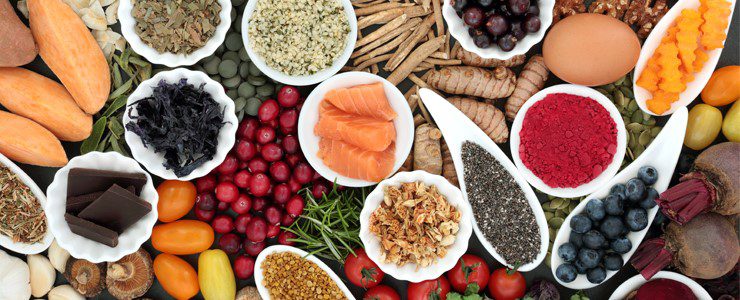
Christmas overindulgence: Can it impact productivity?
The time for festive feasting is here again – which means many of us will probably be overindulging on rich Christmas foods already.
The beginning of December marks the start of the Christmas period for some. This means office parties, get-togethers with family and friends and more treats at home.
While it’s great to feel festive, it’s also important to exercise some caution and a little restraint at this time of year.
Eating too much Christmas food can have a negative impact on our wellbeing, and ultimately our productivity, if we’re getting into the party spirit too soon while still at work.
Are you really what you eat?
Have you ever heard the old saying, “You are what you eat?” While this doesn’t mean you’re literally going to turn into a giant turkey, there’s some accuracy in it.
The food and drink that we consume can impact our daily life significantly, based on how our digestive system works. Humans require foods that contain nutrients and provide energy to perform better. Healthier foods with the relevant nutrients can have a positive impact on how well we function and work afterwards.
It’s akin to filling up your car with premium quality fuel so it runs better. It follows that if you’ve eaten healthier foods, you’ll be able to work more efficiently, with an improved cognitive performance.
If you’ve over-indulged on the wrong foods at lunchtime, however, you’re more likely to suffer the “afternoon slump” – when all you feel like doing at 3pm is putting your head down on the desk for a nap.
Our diet impacts every aspect of day-to-day life, as it directly affects wellness and performance.
Why do we feel drowsy after overeating?
If you’ve eaten a large Christmas lunch or too many mince pies, you may feel a little nauseous initially. This is followed by feelings of extreme drowsiness. If you’re at work, this will undoubtedly impact performance.
The reason people feel this way is due to a combination of eating too fast and exposing the digestive system to much more fat than it’s used to. The higher level of fat and carbs in the stomach can increase insulin levels, leaving you feeling drained and tired. It can also make the heart work harder due to increased fat levels in the bloodstream.
Between one and two hours after a heavy meal, you may start to feel abdominal discomfort, bloating and gas as the food passes through your digestive tract. This is caused by not only the bulk of the food, but also because the higher salt intake retains extra fluid in the body.
If you’re going to a party, or out for a meal, nutritionists suggest eating a little slower, rather than shovelling down as much food as possible in a short space of time! This gives your stomach enough time to send a signal to the brain that you’re full.
Overeating and productivity
The British Dietetic Association claims the average person in the UK consumes an extra 500 calories a day during the festive season – which seems to begin earlier each year. Realistically, this means a possible weight gain of around 5lb by the start of the new year.
The earlier you start the festive overindulgence, the more it will impact not only your weight, but also your health and performance at work.
Research shows that 33% of people who admit to eating unhealthy foods, or overeating in general, are doing so to help alleviate the stress of the workplace.
It’s ironic that the very act of overeating can make us less productive and therefore more stressed. We’re less likely to be able to do our job if we’re full of Christmas pudding, so it will make it more challenging than usual to keep up with work.
Nutritionists suggest people should offset Christmas overindulging by exercising in the morning. A 20-minute, high intensity training session will mean you’re less likely to store fat after a big meal. In addition, try to keep as active as possible during the day, such as taking a brief walk after lunch, or if you’re feeling drowsy.
Combat rich festive foods by adding beneficial carbohydrates and nutrients to your diet such as brown rice, whole grains, fresh fruits and vegetables. Research has found the more fruit and veg people eat, the more creative, happy and productive they feel.
How can a coworking environment help?
Coworking space is great for working around your own routine as Christmas approaches. The flexibility it offers means you can plan ahead: if you have an early Christmas get-together in the pipeline, amend your schedule so it has as little disruption as possible on your job.
It has been proven by surveys: 74% of co-workers believe they are more productive compared with a traditional 9-5 environment. Utilising coworking space in London – and our coworking space in Farringdon in particular – is ideal for experiencing the Christmas buzz in the runup to the holidays.
We have onsite bike racks, shower rooms and free breakfast five days a week, so you can take some light exercise during the day and eat a healthy breakfast to avoid feeling a pre-Christmas dip in performance.
Once you’re on your Christmas break, you can enjoy mince pies, roast potatoes and pigs in blankets to your heart’s desire!
© VGstockstudio / Shutterstock.com



